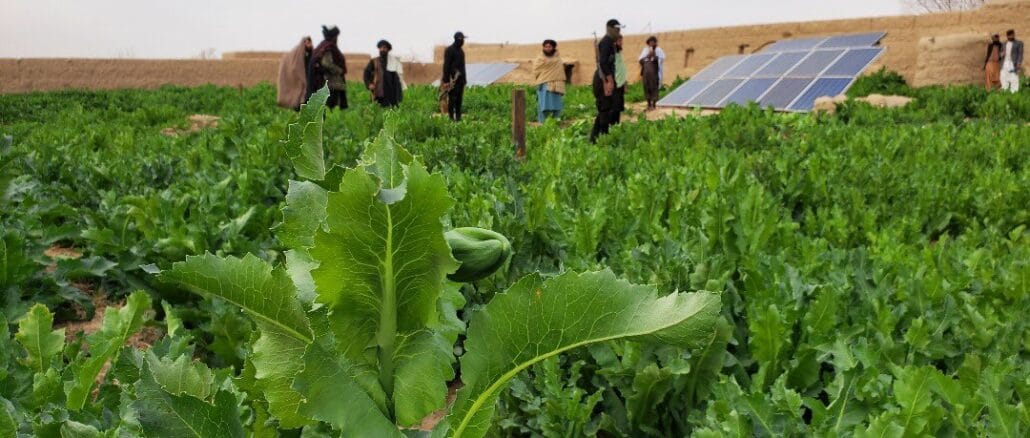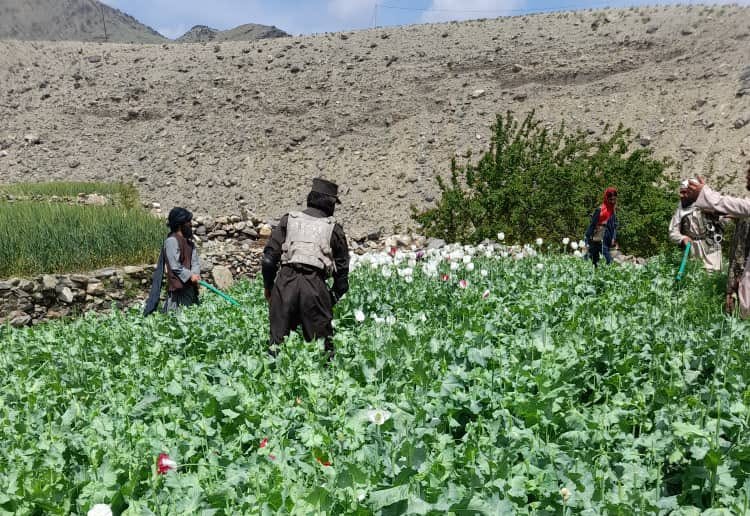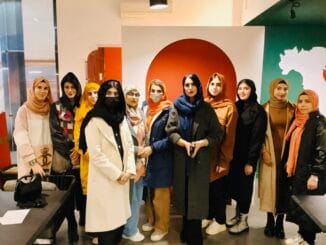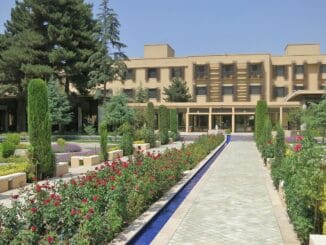
As the season for poppy and other crop cultivation begins in parts of Afghanistan, the Taliban-led government reiterates its enforcement of the ban on poppy cultivation under the decree of the group’s supreme leader. Officials from the Ministry of Interior say they have spent over one billion Afghanis (approximately $13631613) this year on efforts to combat narcotics and treat drug addicts, accusing the international community of failing to fulfill its pledges of support.
Taliban: “We’re Alone in This Fight”
Abdul Matin Qani, spokesperson for the Ministry of Interior, says that United Nations officials and foreign diplomats promised to help Afghan farmers switch to alternative crops. However, Qani says these commitments have not yet translated into tangible assistance.
“Foreign aid agencies made promises in our meetings. They said they would help, but the Islamic Emirate is left alone to combat this phenomenon,” Qani said. “Last year, we spent over one billion Afghanis on these efforts. Beyond those pledges, there has been no significant cooperation for alternative livelihoods or other sectors.”
Taliban authorities say this money was drawn from Afghanistan’s mining revenues, though officials have not disclosed which mines were sold or how these funds were generated.

Ongoing International Support, Yet Questions Remain
The Taliban’s criticism of the global community comes despite continued donor assistance through United Nations channels. This year alone, the European Union provided more than 40 million euros in aid for combating narcotics and assisting addicts in Afghanistan. The United States and Japan have also contributed funds through various UN-led programs.
International donors assert that their support is delivered directly to farmers through aid organizations, bypassing the Taliban administration. They cite a lack of transparent mechanisms within the current government to ensure funds reach those most in need.
Farmers Say Aid Is Insufficient
Juma Gul, a farmer in Uruzgan Province, says he has not cultivated poppies for the past two years but has received little help to compensate for the loss of that income.
“I was given wheat seeds that were not even suitable for consumption,” he said. “Meanwhile, a 50-kilogram bag of wheat costs 5,300 to 5,500 Afghanis. We need assistance. So far, the Taliban haven’t provided any help, no agricultural seeds or anything else.”

Experts Call for More Targeted Solutions
Dr. Zafar, the former Deputy Minister of Counter-Narcotics at the Ministry of Counter Narcotics, says the ban on poppy cultivation has caused significant hardship for impoverished farmers who urgently need assistance.
“Afghans, in general, are facing severe poverty, and farmers are hit the hardest,” he said. “If the government cannot help, international agencies can step in, guided by agricultural experts, to provide viable alternative crops. But this requires precise programs and sustained efforts.”
UN-Led Working Group Established
A month ago, the United Nations convened its first meeting in Kabul with a newly formed task force on counter-narcotics. This group includes foreign diplomats and representatives of international organizations, and its mission is to offer economic support and alternative crop options to Afghan farmers.
Despite two months since the group’s formation, there has been no public update on its progress. For many Afghan farmers, the window to plant alternative crops is closing quickly, leaving them caught between the Taliban’s strict ban and uncertain international assistance.





Be the first to comment